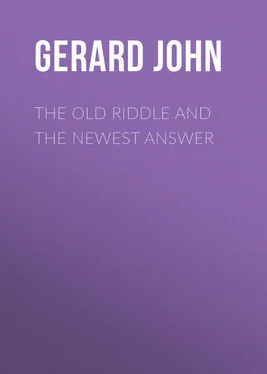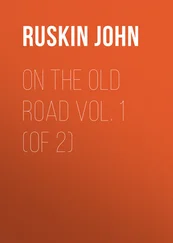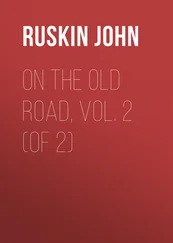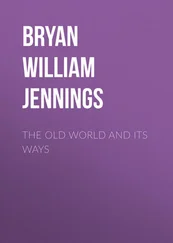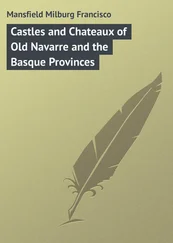John Gerard - The Old Riddle and the Newest Answer
Здесь есть возможность читать онлайн «John Gerard - The Old Riddle and the Newest Answer» — ознакомительный отрывок электронной книги совершенно бесплатно, а после прочтения отрывка купить полную версию. В некоторых случаях можно слушать аудио, скачать через торрент в формате fb2 и присутствует краткое содержание. Жанр: foreign_religion, foreign_antique, foreign_prose, на английском языке. Описание произведения, (предисловие) а так же отзывы посетителей доступны на портале библиотеки ЛибКат.
- Название:The Old Riddle and the Newest Answer
- Автор:
- Жанр:
- Год:неизвестен
- ISBN:нет данных
- Рейтинг книги:4 / 5. Голосов: 1
-
Избранное:Добавить в избранное
- Отзывы:
-
Ваша оценка:
- 80
- 1
- 2
- 3
- 4
- 5
The Old Riddle and the Newest Answer: краткое содержание, описание и аннотация
Предлагаем к чтению аннотацию, описание, краткое содержание или предисловие (зависит от того, что написал сам автор книги «The Old Riddle and the Newest Answer»). Если вы не нашли необходимую информацию о книге — напишите в комментариях, мы постараемся отыскать её.
The Old Riddle and the Newest Answer — читать онлайн ознакомительный отрывок
Ниже представлен текст книги, разбитый по страницам. Система сохранения места последней прочитанной страницы, позволяет с удобством читать онлайн бесплатно книгу «The Old Riddle and the Newest Answer», без необходимости каждый раз заново искать на чём Вы остановились. Поставьте закладку, и сможете в любой момент перейти на страницу, на которой закончили чтение.
Интервал:
Закладка:
Mr. Darwin himself, who is constantly supposed to have upheld, or even to have demonstrated, the fact of spontaneous generation, is amongst the strongest witnesses against it. He was indeed disposed to believe that the living will some day be found to be producible from the lifeless, the ground of his expectation being the "Law of Continuity," 90 90 To D. Mackintosh, February 28, 1882.
or the assumption that from the beginning of nature to the end one only kind of law uniformly operates, namely the same as we now experience. But this is to assume the whole question at issue, for unless it can be shewn that there has been spontaneous generation, we cannot be assured that there is such a Law of Continuity. And despite his expectation Darwin always denied that the origin of life has been – sometimes even that it can be – explained. Thus he wrote on various occasions:
It is mere rubbish thinking at present of the origin of life; one might as well think of the origin of matter. 91 91 To Sir J. D. Hooker, March 29, 1863.
As for myself I cannot believe in spontaneous generation, and though I expect that at some future time the principle of life will be rendered intelligible, at present it seems to me beyond the confines of Science. 92 92 To V. Carus, November 21, 1866.
No evidence worth anything has as yet, in my opinion, been advanced in favour of a living being, being developed from inorganic matter. 93 93 To D. Mackintosh, February 28, 1882.
Here we may conveniently pause and take stock of our results. On the one hand, we are bidden in the name of Science to learn the past from the present, and the present from observation and experiment alone. On the other, we are invited to believe in an occurrence which observation and experiment negative in the present, on the ground that the circumstances must once have been entirely different from any with which we are acquainted. Obviously, the real motive of belief is that naïvely expressed by Professor Haeckel, who tells us that spontaneous generation is proved by the doctrine of Evolution; 94 94 Riddle of the Universe , p. 6.
which then in its turn is proved by spontaneous generation.
Two points must however be noticed in which it is attempted to find present evidence in favour of spontaneous generation.
First, there is Protoplasm – the "Physical Basis of Life," or Living Matter, being that form of matter by which life is always accompanied. In this no chemical element unknown elsewhere, is to be found; the cells of which it consists are compounded of Oxygen, Hydrogen, Nitrogen, and Carbon; and it has been argued, especially by Huxley, that it is therefore not different in kind from other compounds; that as Oxygen and Hydrogen form water, Oxygen and Carbon, Carbonic Acid, Hydrogen and Nitrogen, Ammonia, – so the four combined, in proper circumstances and proportions, make Living Matter, without the aid of any vital force or principle. And Haeckel with his habitual audacity foretells the artificial production of Protoplasm for purposes of commerce. But, as Mr. Stirling observes, 95 95 As regards Protoplasm , p. 21.
man has always known that he is made of dust, and that the only part of him perceptible to sense is substantially the same as the earth beneath his feet. All that he now learns in addition is that when such matter is wedded to life it undergoes marvellous transformations which in part at least we are able to recognize, but are wholly unable to comprehend. This Professor Huxley himself admits:
The properties of living matter [he writes] 96 96 Encyclopaedia Britannica , "Biology."
distinguish it absolutely from all other kinds of things, and the present state of knowledge furnishes us with no link between the living and the not-living.
Not only that: the subject is full of complexities of which Professor Huxley gives no hint, and which it would even seem he did not himself perceive. In his celebrated lecture on the Physical Basis of Life 97 97 Printed in Lay Sermons .
he gives his hearers to understand that all Protoplasm is the same, that its particles are as the bricks with which any sort of edifice may be constructed, a cathedral or a gin-shop, a palace or a hovel. The protoplasm of a mushroom, for instance, he declares to be essentially identical with that of him who eats it, into which it is most readily convertible. He also speaks of the effect of eating mutton being to "transubstantiate sheep into man." But, positive as are these statements, they are far from representing scientific truths, and we are told by Sir William Thiselton-Dyer that he himself would not know what to do with a candidate who should advance such views in an examination. 98 98 Nature , June 5, 1902, p. 121.
As to the mushroom and the mutton, Sir William adds, that except the definition of a crab, as a red fish that runs backwards, attributed to the French Academy, he can call to mind no statement "so compact of error."
In reality, instead of all Protoplasm being the same, the differences are infinite. Particles from different sources may be indistinguishable by the microscope or by any test that chemistry can apply, but this only increases the mystery of their nature, for each has its own functions and will perform no others. The Protoplasm of a plant will do what that of an animal, seemingly identical, cannot do. That of a fish will convert the same nutriment into quite a different formation from that of a man.
It is no doubt true that a particle of fungoid differs in no appreciable physical respect from one of human protoplasm, yet the former will never emerge from the fate of the humble mushroom, while the other may be instinct with the thoughts of a Prime Minister. 99 99 Id. ibid.
As Mr. Stirling sums up the matter: 100 100 Op. cit. p. 27.
There is nerve-protoplasm, brain-protoplasm, bone-protoplasm, muscle-protoplasm, and protoplasm of all the other tissues, no one of which but produces only its own kind, and is uninterchangeable with the rest. Lastly, we have the overwhelming fact that there is the infinitely different protoplasm of the various infinitely different plants and animals, in each of which its own protoplasm, as in the case of the various tissues, but produces its own kind, and is uninterchangeable with that of the rest.
It thus appears that the character of Protoplasm, far from making it easier to conceive the mechanical production of living things, does but immensely aggravate the difficulty. As Sir William Thiselton-Dyer avows: "I do not see even the beginning of a materialistic theory of protoplasm." And Haeckel's idea that we shall succeed in creating organic life does not commend itself to such an authority as Sir Henry Roscoe:
It is true [he says] 101 101 Presidential Address , British Association, 1887.
that there are those who profess to foresee that the day will arise when the chemist, by a succession of constructive efforts may pass beyond albumen, and gather the elements of lifeless matter into a living structure. Whatever may be said of this from other standpoints, the chemist can only say that at present no such problem lies within his province. Protoplasm, with which the simplest manifestations of life are associated, is not a compound, but a structure built up of compounds. The chemist may successfully synthesize any of its component compounds, but he has no more reason to look forward to the synthetic production of the structure than to imagine that the synthesis of gallic acid leads to the artificial production of gall-nuts.
And M. de Quatrefages thus sums up the conclusions at which he arrives from minute study of the lowest forms of life: 102 102 Les Emules de Darwin , ii. 66.
Интервал:
Закладка:
Похожие книги на «The Old Riddle and the Newest Answer»
Представляем Вашему вниманию похожие книги на «The Old Riddle and the Newest Answer» списком для выбора. Мы отобрали схожую по названию и смыслу литературу в надежде предоставить читателям больше вариантов отыскать новые, интересные, ещё непрочитанные произведения.
Обсуждение, отзывы о книге «The Old Riddle and the Newest Answer» и просто собственные мнения читателей. Оставьте ваши комментарии, напишите, что Вы думаете о произведении, его смысле или главных героях. Укажите что конкретно понравилось, а что нет, и почему Вы так считаете.
